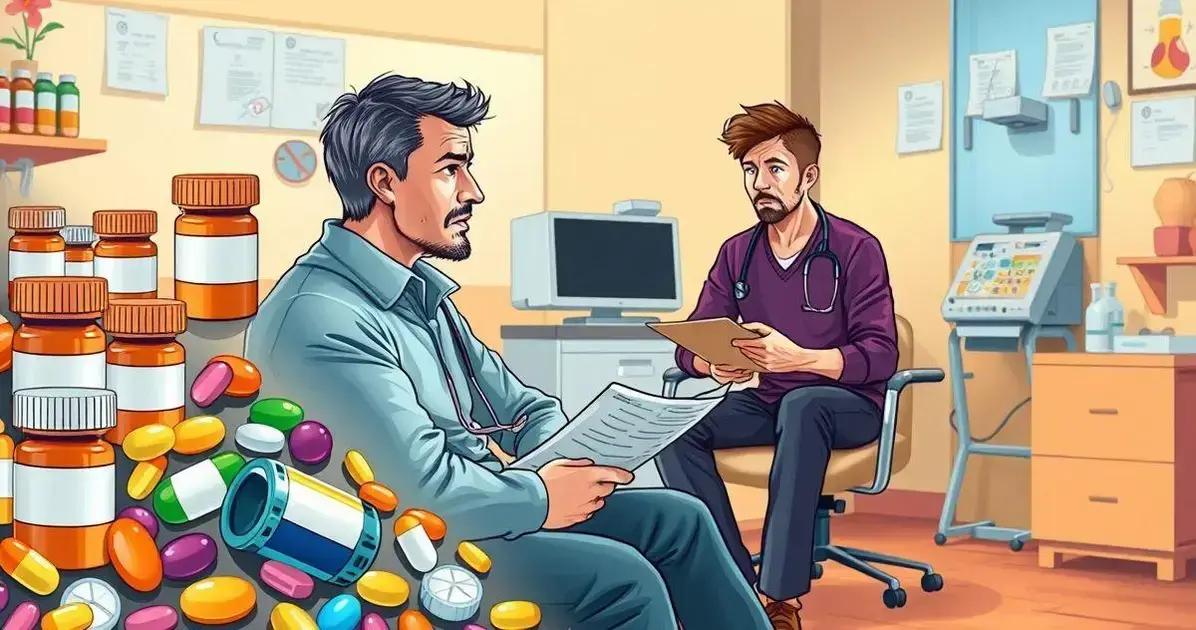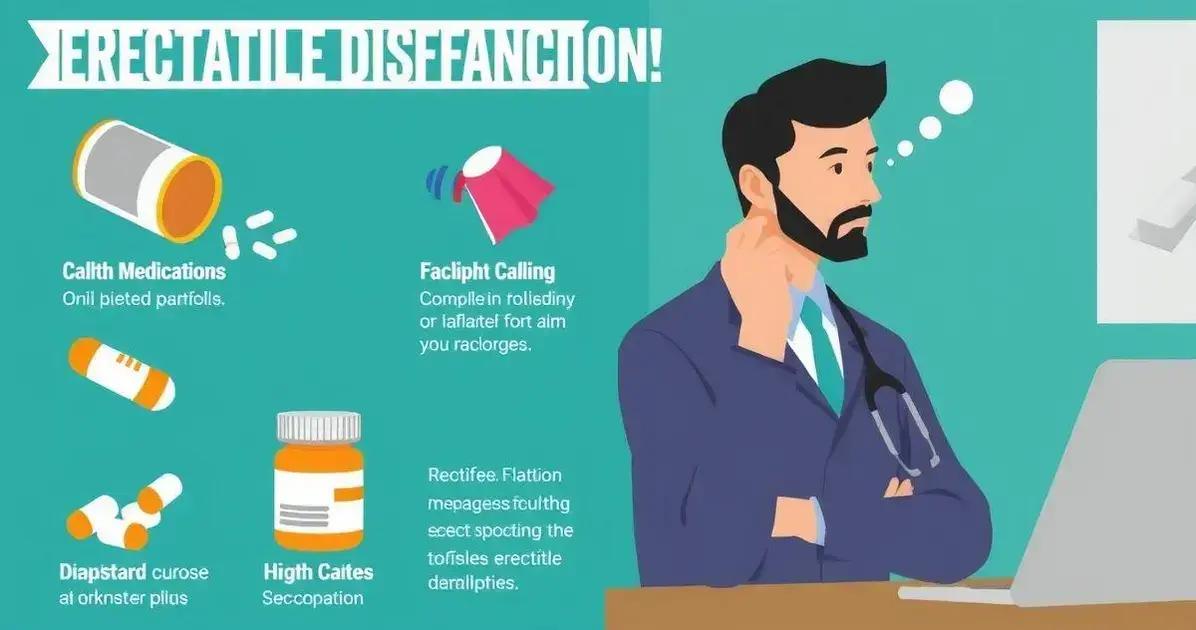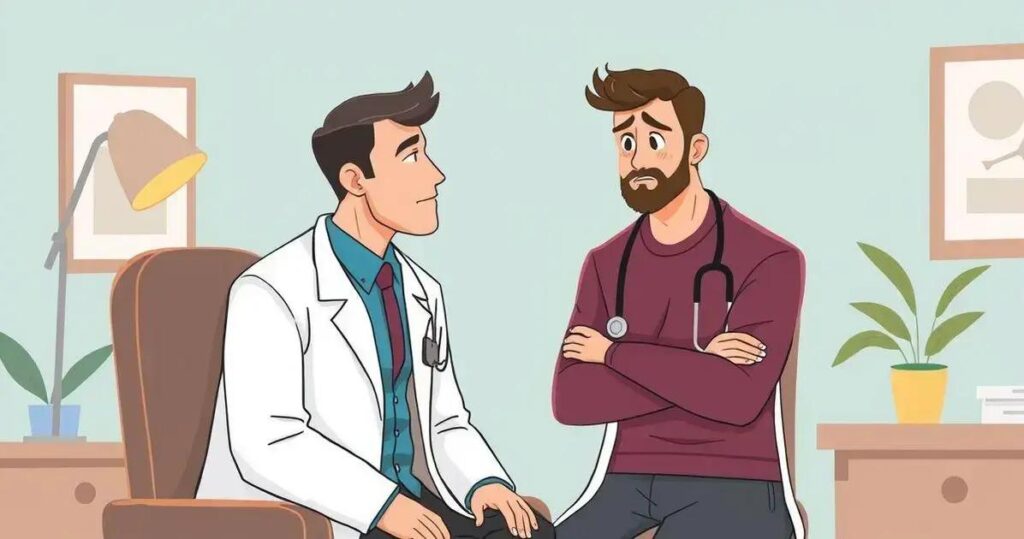Managing erectile dysfunction caused by medication involves understanding the medications that may contribute to the issue, consulting your doctor for possible alternatives, and making lifestyle changes such as maintaining a healthy diet, exercising regularly, and managing stress. Open communication with your partner and regular follow-ups with your healthcare provider are also crucial for finding effective solutions.
Erectile dysfunction can be a frustrating side effect of many common medications. Understanding how to manage erectile dysfunction caused by medication is essential for maintaining a healthy sexual relationship. In this comprehensive guide, we will explore the reasons medications may contribute to this issue and offer practical strategies to help you navigate these challenges. By consulting your doctor and considering lifestyle adjustments, you can regain control and improve your sexual health.
Understanding Erectile Dysfunction and Medications

Erectile dysfunction (ED) is a condition that affects a significant number of men, and it can be caused by a variety of factors. One major cause of ED is the medications that men often take for other health issues. Understanding erectile dysfunction and medications is crucial for finding effective solutions.
Many prescription medications can interfere with the natural processes that lead to an erection. These medicines may affect the blood flow to the penis, alter hormone levels, or impact nerve signals. Common types of medications linked to ED include:
Types of Medications
- Antidepressants: Certain antidepressants, particularly selective serotonin reuptake inhibitors (SSRIs), can lead to sexual side effects, including erectile dysfunction.
- High Blood Pressure Medications: Some medications designed to lower blood pressure may also restrict blood flow to the penis, leading to difficulties in achieving an erection.
- Antihistamines: Used for allergies, some antihistamines may reduce the ability to achieve an erection due to their effects on hormone levels and blood flow.
- Cholesterol Medications: Statins and other cholesterol medications can influence sexual function and are linked to ED symptoms.
- Pain Medications: Opioids and other pain-relief medications can interfere with sexual performance and libido.
While these medications play a crucial role in managing various health conditions, being aware of their potential side effects, including ED, is essential. Always talk to your doctor if you suspect your medication is impacting your sexual health. They may recommend alternative treatments or adjustments to your medication regimen.
Common Medications That Cause Erectile Dysfunction

Many men who experience erectile dysfunction (ED) may not realize that some of the medications they take could be the culprit. Common medications that cause erectile dysfunction span several categories, each impacting the body in different ways. Here are some of the major types of medications that can contribute to ED:
1. Antidepressants
Medications used to treat depression, especially SSRIs (selective serotonin reuptake inhibitors), often have sexual side effects. Drugs like fluoxetine (Prozac) and sertraline (Zoloft) can lower libido and lead to difficulties in gaining an erection.
2. Blood Pressure Medications
Certain antihypertensive medications, like beta-blockers and diuretics, can decrease blood flow and contribute to erectile dysfunction. Medications such as metoprolol and hydrochlorothiazide often have this effect.
3. Antihistamines
Some drugs used for allergy relief, like diphenhydramine (Benadryl), can cause drowsiness and lower sexual arousal, which may lead to ED.
4. Opioids
Prescriptions for pain relief, particularly strong opioids like oxycodone and morphine, can affect hormone levels and lead to a decrease in sexual function.
5. Hormonal Treatments
Certain medications for prostate cancer or testosterone replacement therapy can also disrupt hormonal balances, resulting in erectile dysfunction as a side effect.
If you suspect any of your medications may be causing ED, it’s important to talk to your healthcare provider. They can assess your situation, explore alternative treatments, or adjust your current medications to help manage the side effects.
Practical Strategies for Managing Erectile Dysfunction

Managing erectile dysfunction (ED) can be challenging, especially when it’s induced by medications. However, there are practical strategies for managing erectile dysfunction that can improve your sexual health and wellbeing. Here are some strategies to consider:
1. Open Communication with Your Partner
Talk openly with your partner about your situation. Communication is essential for maintaining intimacy and understanding between partners. Discussing your feelings can help both of you cope with the challenges of ED.
2. Consult Your Doctor for Alternatives
It’s important to consult your healthcare provider about your ED. They can assess your condition and might switch you to a different medication with fewer sexual side effects. Your doctor can also provide insights on potential treatment options like therapy or medications specifically for ED.
3. Consider Therapy
Sometimes, psychological factors contribute to ED. Seeing a therapist can help. Cognitive-behavioral therapy, for instance, is effective in addressing anxiety or performance pressure related to sexual activity.
4. Maintain a Healthy Lifestyle
Making positive lifestyle changes can significantly improve erectile function. Regular exercise can increase blood flow and improve overall health. Also, eating a balanced diet rich in fruits, vegetables, and whole grains can support erectile function.
5. Explore Vacuum Erection Devices
These devices create a vacuum around the penis, drawing blood into it and aiding in achieving an erection. Vacuum devices can be a non-invasive and effective option for many men experiencing ED.
6. Medication for ED
In some cases, specific medications designed to treat ED, such as sildenafil (Viagra) or tadalafil (Cialis), may be suitable. Consult your doctor to determine if these options are right for you based on your current medications and health status.
Consulting Your Doctor: A Crucial Step

When dealing with erectile dysfunction (ED) caused by medication, consulting your doctor is a crucial step. Healthcare providers can help identify the underlying causes and recommend solutions tailored to your needs.
Why You Should Consult Your Doctor
Your doctor can assess whether your current medications are contributing to ED. A thorough evaluation will allow them to understand your medical history, lifestyle, and any additional factors affecting your sexual health.
Preparing for Your Appointment
Before the appointment, it can help to prepare a list of your medications, including dosages and any recent changes. You may also want to note the timing of when you began experiencing ED symptoms. This information will aid your doctor in making an accurate assessment.
What to Discuss with Your Doctor
During the consultation, it’s essential to be honest about your symptoms and any emotional distress you’re experiencing due to ED. Discuss your sexual health openly and ask questions about:
- Possible side effects of your current medications
- Alternative medications that might be safer
- Other possible treatments for ED, such as therapy or devices
Follow-Up Appointments
ED management may require ongoing discussions with your doctor. Follow-up appointments can help track your progress and adjust treatment plans as needed. Regular communication will be vital for achieving effective management of your erectile dysfunction.
Confidence in Your Health Choices
Consulting your doctor not only addresses your physical health but also boosts your confidence in managing your condition. With the right support and information, many men find relief from the challenges of ED.
Lifestyle Changes to Improve Erectile Function

Making lifestyle changes to improve erectile function can be a powerful way to enhance your sexual health and overall wellbeing. Here are some effective strategies to consider:
1. Healthy Diet
A balanced diet is key to improving blood circulation and hormonal balance. Focus on consuming:
- Fruits and vegetables: These provide essential vitamins and minerals.
- Whole grains: Foods like oats and brown rice can improve heart health.
- Lean proteins: Fish, poultry, and legumes promote muscle health and recovery.
2. Regular Exercise
Staying physically active can enhance blood flow and reduce anxiety. Aim for at least 30 minutes of moderate exercise on most days. Activities like walking, swimming, or cycling are great options.
3. Maintain a Healthy Weight
Being overweight can negatively impact erectile function. Losing even a small amount of weight can improve your sexual health. Focus on sustainable weight loss through diet changes and regular exercise.
4. Limit Alcohol and Smoking
Excessive alcohol consumption and smoking can lead to ED. Try to limit alcohol intake and avoid smoking. If you need assistance, consider support groups or speaking with a healthcare provider.
5. Manage Stress
High stress levels can affect your sexual performance. Engage in relaxation techniques such as yoga, meditation, or deep-breathing exercises. Finding hobbies or activities that you enjoy can also help reduce stress.
6. Get Enough Sleep
Sleep is vital for hormonal health and overall wellbeing. Aim for 7-9 hours of quality sleep each night. Establishing a regular sleep schedule can help improve your sleep quality.
7. Stay Hydrated
Proper hydration supports all bodily functions, including sexual function. Drink enough water throughout the day to keep your body hydrated and functioning optimally.
Managing Erectile Dysfunction for a Healthier Life
Erectile dysfunction (ED) caused by medication can be a challenging condition, but understanding its causes and implications is the first step toward effective management.
By consulting your doctor, making necessary lifestyle changes, and exploring treatment options, you can regain control over your sexual health. Open communication with your healthcare provider and partner plays a crucial role in successfully navigating this issue.
Implementing practical strategies, maintaining a healthy lifestyle, and addressing any underlying medical conditions can significantly improve your erectile function. Remember, you are not alone in this journey, and support is available to help you achieve a fulfilling sexual and emotional life.
FAQ – Frequently Asked Questions about Managing Erectile Dysfunction
What causes erectile dysfunction related to medication?
Certain medications, such as antidepressants, blood pressure medications, and antihistamines, can impact erectile function by altering blood flow or hormonal balance.
How can lifestyle changes help alleviate erectile dysfunction?
Making healthy lifestyle changes like maintaining a balanced diet, exercising regularly, managing stress, and quitting smoking can greatly improve erectile function.
Why is consulting a doctor important for erectile dysfunction?
Consulting a doctor is crucial for determining whether your medications are contributing to ED and for exploring alternative treatments or adjustments.
What are some practical strategies for managing erectile dysfunction?
Practical strategies include open communication with your partner, consulting your doctor for alternatives, considering therapy, and maintaining a healthy lifestyle.
What should I discuss with my doctor regarding erectile dysfunction?
Discuss your symptoms openly, any emotional distress, your current medications, and ask about alternative treatments or therapies that might be available.
Can erectile dysfunction be reversed?
In many cases, addressing the underlying causes, such as medication adjustments and lifestyle changes, can help reverse erectile dysfunction.













